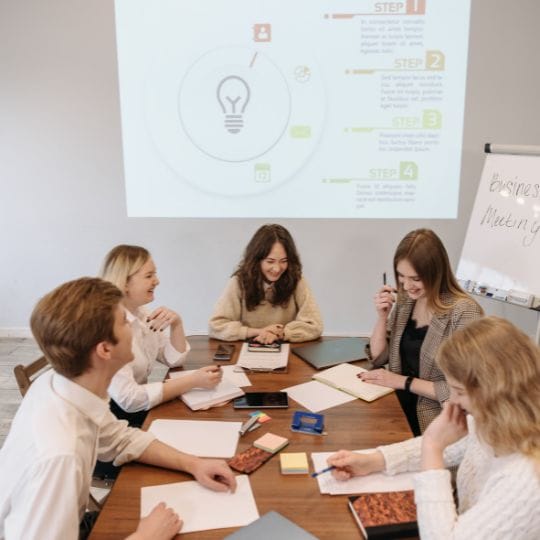
Are you committed – but terrified – to taking your business to the next level? Have you been playing small and feel ready to step up and into what you were meant to be doing? This episode provides some proven methods to help you stop playing small and start playing big – so you can step into your greatness and live a more authentic and purposeful life.
You’ve probably heard people talking about playing small. But what does it actually mean?
The Cambridge Dictionary says to ‘play small’ means to avoid risks and actions that might cause problems or make you feel uncomfortable, with the result that you might not achieve what you want to achieve.
It means your actions are motivated by fears, insecurities and low self-worth.
It means you’re not honouring your passion – instead, you’re settling for a life that is less than what you are capable of living.
Now if that definition doesn’t punch you in the face, I don’t know what will!
To me, playing small is a bit like that old analogy of someone ‘being a wallflower’ – standing back, not knowing what to say, blending in and being invisible.
The signs that you’re playing small might include that you:
Playing small really takes away from our ability to live a full life – and it’s incredibly inauthentic. If you’re too afraid of being judged, of failing or not being good enough, then you will likely shelve your authentic self, needs and ideas to avoid the associated pain.
Maybe it’s because our reptilian brain is constantly trying to keep us safe – to seek pleasure and avoid pain. After all, it’s much easier to sit on the couch watching Netflix than it is facing a difficult conversation.
Maybe we’ve been through traumatic experiences that have dysregulated our nervous systems – and we’ve become risk-averse. For example, some people have been through significant experiences that have led them to be fearful of exposure to harm at the hands of others. Burnout could be one example or some sort of abuse or assault.

Maybe we’ve been conditioned to believe we aren’t good enough, or that we don’t have enough – and we have adopted those beliefs to make it our own narrative. For example, a lot of people fear not having enough money, of being alone, of being judged or criticised, or of failing, and those sorts of thinking patterns keep them stuck in their boring, unhelpful or toxic situations.
Maybe we’ve developed a habit of outsourcing our sense of worth, validation and needs to other people. For example, some people constantly ask others for advice or opinions of what to do, or to get help with something, not trusting their own ideas or solutions. Some have been in controlling relationships and believe that the other person knows better and has all the answers.
As you can see, there are these physiological and psychological drivers that work together to work against you.
The great thing is – a huge part of turning things around is in your hands. It’s about developing the skills to challenge and overcome your narrative – the underlying beliefs and assumptions you have created for yourself – and to start becoming an independent thinker.
An independent thinker is someone who can use “critical thinking” to evaluate situations and points of view, with curiosity and then, to change their beliefs or standpoints. Critical thinking is not about criticism – it’s about being open-minded to new ideas but ultimately deciding for yourself or solving problems on your terms, based on your own judgement and perceptions.
When you can unwind the thinking habits that lead to this impulsive, reactive and fear-driven way of living, you can start to play big and start living the life you were born to lead.
It’s clear that playing small can feel safe but is deeply unsatisfying.
Playing big is the opposite of playing small. It means that your actions are motivated by the things that bring you true fulfilment and satisfaction.
So how can you learn to play big?
Firstly, you can become an independent thinker. This involves:

When you do these sorts of things, you get to know yourself better, see life from a bigger and broader perspective, and gain skills to help you move forward on your own.
When you do this, you become more open-minded, confident, and competent at solving problems, develop impartiality and leadership skills, and learn to be more aware of your own thoughts and emotions so you can stay above them. You can also enjoy better relationships!
Secondly, you can notice and re-wire any unhelpful ‘playing small’ habits and replace them with healthier options.
If you think about it, a lot of people who are in the playing small mindset are operating and responding automatically.
It takes what I call ‘conscious conscientiousness’ to break these automatic patterns and start living a bigger life – that is, being aware of what you’re doing and consistently working on changing those patterns.
I’ve done a lot of this work in my own life, and developed my own model of Factualising (instead of Catastrophising) as per a podcast I did a couple of years ago.
Here are some examples I’ve used:
Thoughts

Actions
The interesting thing is that it’s not actually about success as an end goal. Whether you win or lose, flourish or fail, what happens is that you learn to respect yourself, trust yourself, and embrace the processes along your journey. This is where fulfilment actually lies – not in the outcome!
In other words, playing big is a process. If you learn to embrace and love the process, you will get the reward of satisfaction, and integrity and you will live a more authentic life.
A lot of people play small in life because it keeps them safe – but the downside is a sense of frustration and dissatisfaction.
Playing small comes about from the interplay of physiological and psychological factors – things you have experienced, and things that you tell yourself.
To break out of playing small and start playing big, you need to do a lot of work on your mindset and to rewire your old, unhelpful habits.
When you start challenging and rewiring your thoughts and taking actions from a more conscious and conscientious point of view, you will live a more fulfilling life that is more authentic and meaningful.
Understanding who you are and what you need will allow your business to thrive! If you’re truly ready to break old habits and get out of the rut I encourage you to check out the Habitology membership.
Learn more here: